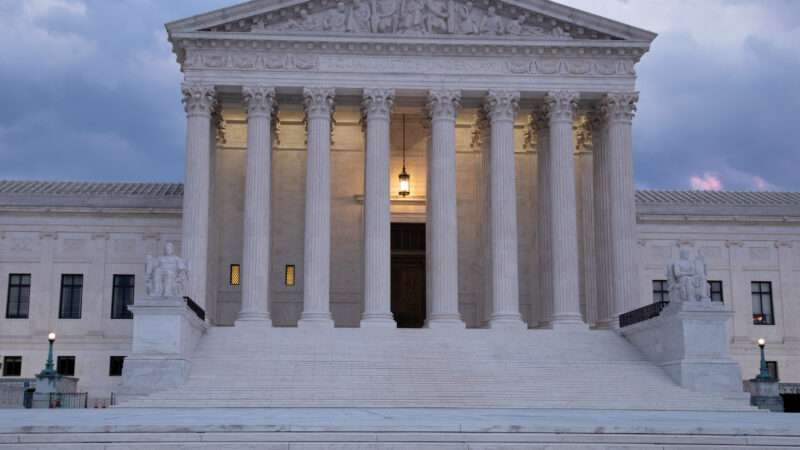
In a major opinion affecting how cities can address homelessness, the U.S. Supreme Court ruled today that an Oregon city's enforcement of a public camping ban against the "involuntarily" homeless does not violate the Eighth Amendment's prohibition on "cruel and unusual" punishment.
"The Cruel and Unusual Punishments Clause focuses on the question what 'method or kind of punishment' a government may impose after a criminal conviction, not on the question whether a government may criminalize particular behavior in the first place," wrote Justice Neal Gorsuch for the majority in the case of City of Grants Pass v. Johnson.
Because the penalties attached to violating Grants Pass' camping ban only involved warnings, small civil fines, and at most 30 days in jail, Gorsuch reasoned they did not amount to "cruel and unusual" punishment.
The five other conservative justices sided with Gorsuch, while the court's three liberals dissented.
Homeless advocates have roundly condemned the opinion, arguing it will give cities a blank check to criminalize homelessness and lock up people with nowhere else to go.
"Cities are now even more empowered to neglect proven housing-based solutions and to arrest or fine those with no choice but to sleep outdoors," said the National Homelessness Law Center in a statement.
The Grants Pass case arose from a lawsuit filed by two homeless individuals against Grants Pass, Oregon, over its enforcement of a local public camping ban. The plaintiffs argued that since the town had no "available" shelter beds, its enforcement of the camping ban against people sleeping outside or in their vehicles effectively criminalized the "status" of homelessness in violation of the Eighth Amendment.
The plaintiffs relied on a prior ruling by the U.S. Court of Appeals for the 9th Circuit, which had ruled in the 2018 case Martin v. Boise that cities can't enforce camping bans when there are no available shelter beds.
A U.S. District Court in Oregon, relying on the Martin decision, blocked Grants Pass' enforcement of its camping ban. In 2022, the 9th Circuit upheld the district court's injunction, prompting Grants Pass to appeal to the U.S. Supreme Court. Earlier this year, the court agreed to take the case.
A bipartisan collection of state and local officials and interest groups has long argued that the 9th Circuit's Martin ruling effectively tied their hands when trying to address homelessness; leaving them effectively powerless to maintain order in public spaces and get the homeless into shelter.
Everyone from California Gov. Gavin Newsom to the free market Goldwater Institute had urged the Supreme Court to overrule the Martin decision.
Gorsuch's opinion gave great weight to cities' complaints that they're unable to address the multi-faceted issue of homelessness so long as the Martin limits on enforcement of public camping bans remained on the books.
"Homelessness is complex. Its causes are many. So may be the public policy responses required to address it. At bottom, the question this case presents is whether the Eighth Amendment grants federal judges primary responsibility for assessing those causes and devising those responses. It does not," he wrote, saying those decisions should be left up to the people and their elected officials.
Writing for the three liberal dissenters, Justice Sonya Sotomayor argued that the sweeping nature of the Grants Pass camping ban did qualify as cruel and unusual punishment.
The city "jails and fines those people for sleeping anywhere in public at any time, including in their cars, if they use as little as a blanket to keep warm or a rolled-up shirt as a pillow. For people with no access to shelter, that punishes them for being homeless. That is unconscionable and unconstitutional," she wrote.
Gorsuch's majority opinion cited heavily from local government associations who argued that the Martin decision had contributed to an explosion in unsheltered homelessness, a crisis they were severely restricted from responding to. (These same taxpayer-funded associations are frequently the biggest opponents of legislation that would remove local regulatory barriers to new housing construction.)
Sotomayor also took issue with Gorsuch's heavy citations of these local government associations, writing "the majority focuses almost exclusively on the needs of local governments and leaves the most vulnerable in our society with an impossible choice: Either stay awake or be arrested."
The post Supreme Court Rules That Punishing the Homeless for Sleeping Outside Isn't 'Cruel and Unusual' appeared first on Reason.com.







